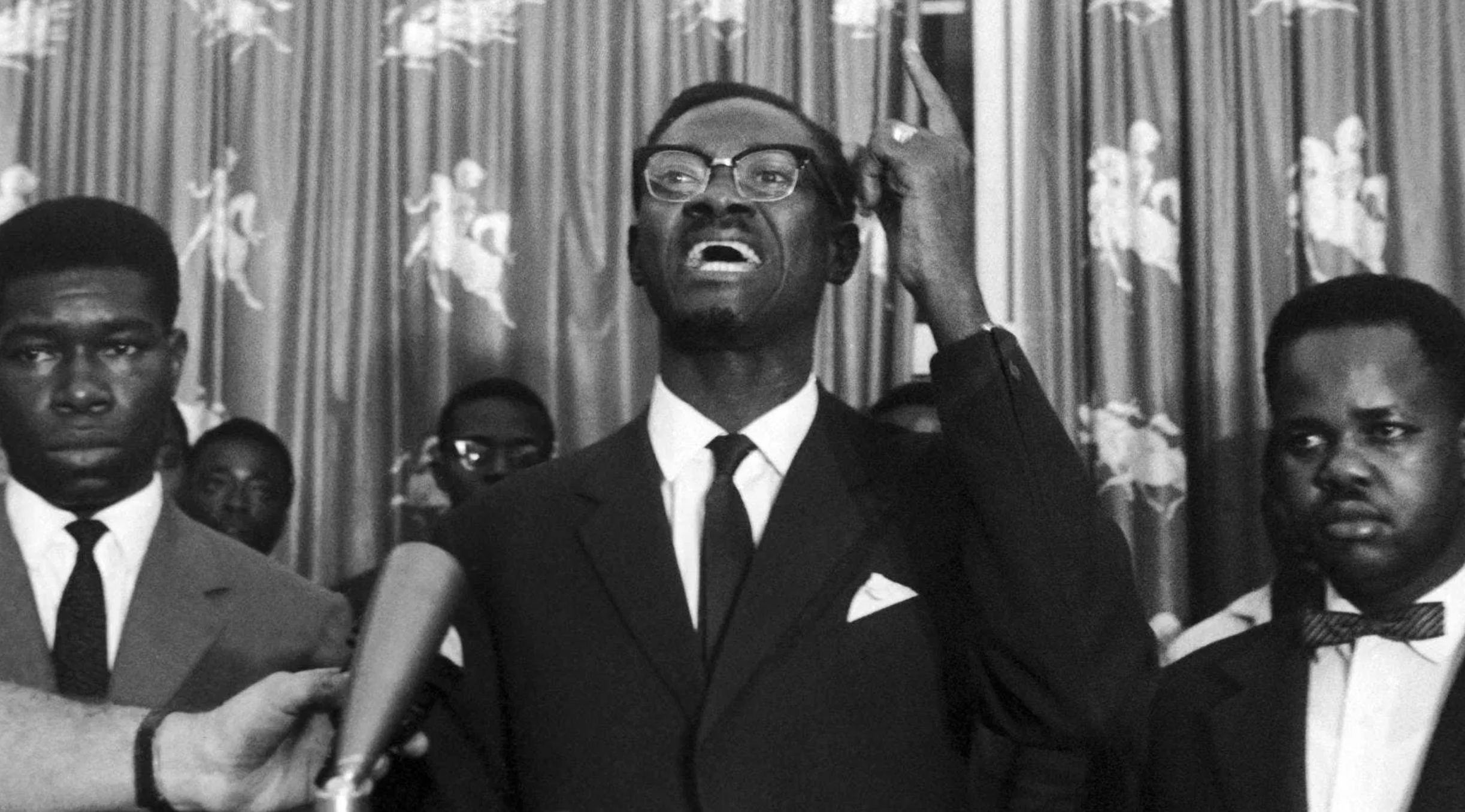
bell hook’s “Feminist Movement to End Violence” (1984)
Ending violence requires disrupting deeply ingrained social norms by exposing how violence is sustained by hierarchical systems of domination rather than merely addressing individual acts of abuse.
Sidi M. Omar on the Preservation of Colonialism
Oma insists that thinkers revisit their own ideas on questions of sovereignty, legality, and justice in a world where colonialism has not ended, merely evolved. He challenges the common notion that “…
Hazel V. Carby’s “On the Threshold of Woman’s Era” (1985)
Black feminist thought arose through Black women’s resistance to racist, sexist, and imperial systems, challenging white supremacy and patriarchal power.
Angela Davis’ “Racism, Birth Control and Reproductive Rights” (1981)
Black women’s lived experiences disrupt dominant narratives of progress and choice, challenging the idea that reproductive rights are universally emancipatory.
Audre Lorde’s “The Master’s Tools Will Never Dismantle the Master’s House” (1979)
White feminist frameworks cannot dismantle patriarchal power because they ignore crucial intersections of race, class, and sexuality.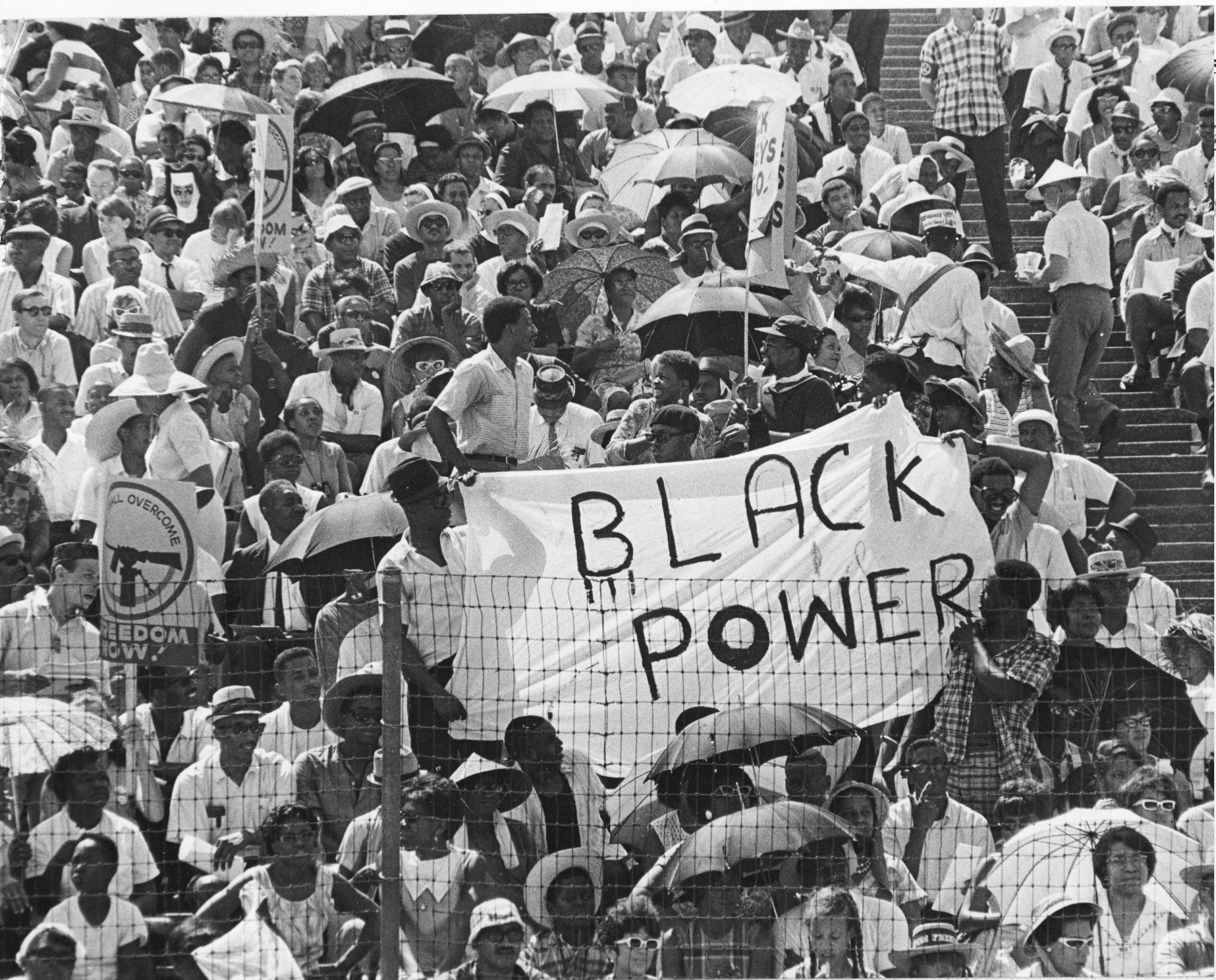
Black Politics: A Journal of Liberation (1968)
This collection of excerpts from Black Politics: A Journal of Liberation (Vol. 1, 1968) offers insights into the Black Power movement during a pivotal year. The document covers a variety of topics…
In Defense of the Right to Political Secession for the Afro-American Nation: Papers and Resolutions from the School on the Afro-American National Question (1982)
These excerpts primarily discuss the Marxist-Leninist perspective on the “Afro-American National Question,” arguing that Afro-Americans in the Black Belt region of the Southern U.S. constitute an oppr…
Freedom of Information and Privacy Acts – Vietnam War
Black activists and students across the United States have utilized their radical groups to protest the Vietnam War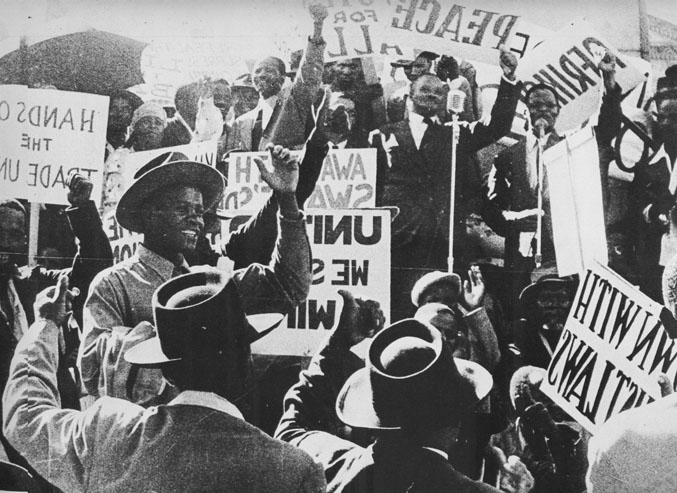
The Freedom Charter – South African Congress Alliance (1955)
In 1955, the African National Congress (ANC) sent out 50,000 volunteers to various townships and rural areas throughout South Africa to gather “freedom demands” from average people. The ANC was ti…
Statement from U.S. Political Prisoners to Nelson Mandela (1990)
On June 21, 1990, U.S. political prisoners sent a statement to Nelson Mandela, who, at the time, was the Deputy Vice President of the African National Congress. In the statement, US political prisoner…
The Uses of Anger: Women Responding to Racism (Audre Lorde, 1981)
In this piece from Audre Lorde, a renowned intersectional feminist/activist, she offers the use of anger as a unifying force for women across the lines of race. White women struggled to understand the…
Young Lords High School Revolt
In this document, Richie Perez from the Young Lords Party calls upon his Black and Puerto Rican community members to continue to fight for the “return of the educational system to the people.” Perez d…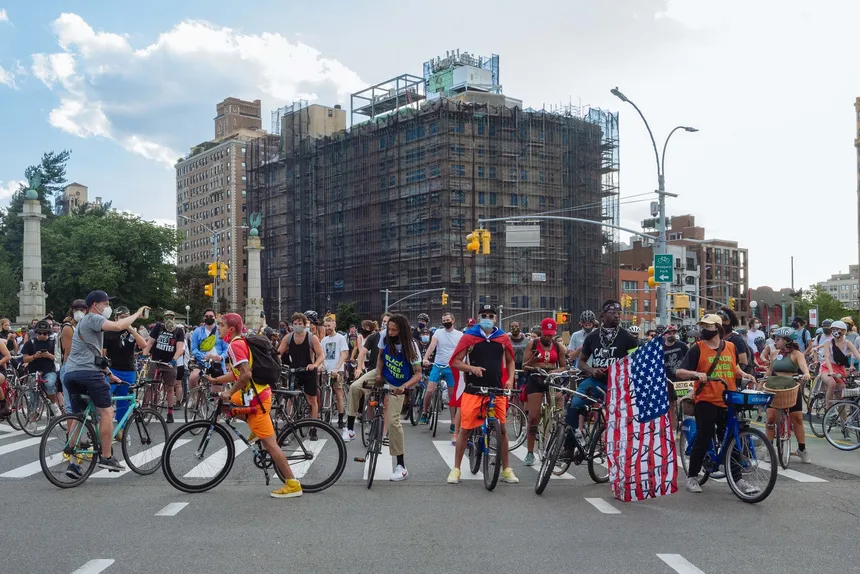
Bicycling Program (1972)
Two community members in Oakland, California recognized the need for reliable modes of transportation in their community. In the newspaper article, they are introducing a program that would fix bicycl…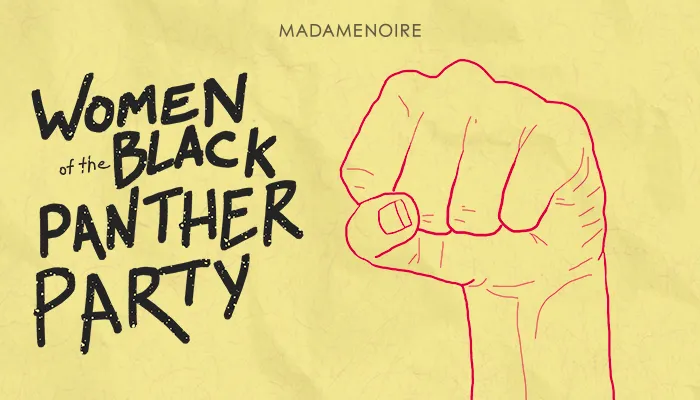
Panther Sisters (Black Panther Party, 1969)
This is part of an interview where a group of women in the Black Panther Party discuss how the struggle for women’s rights intersected with their experiences in the Party. Many of them recall how they…
The Sixties Speak to the Eighties (Redstockings, 1983)
The Redstockings are a radical feminist group that emerged partly out of the Women’s Liberation Movement. In this speech, Kathie Sarachild, a prominent activist and leader within the Redstockings, ref…
Black Panther Party’s Free Medical Clinic
The Black Panther Party created the Mark Clark Free Medical Clinic to assist Black families with gaining access to proper medical facilities. The newspaper article argues Philadelphia’s state-provided…
Building Resistance & Self-Reliance in Detroit
The Black Panther Party organized a self-run, community-based institution to mitigate the devastating impacts of Lyndon Johnson’s “War on Poverty,” where healthcare services previously provided to Bla…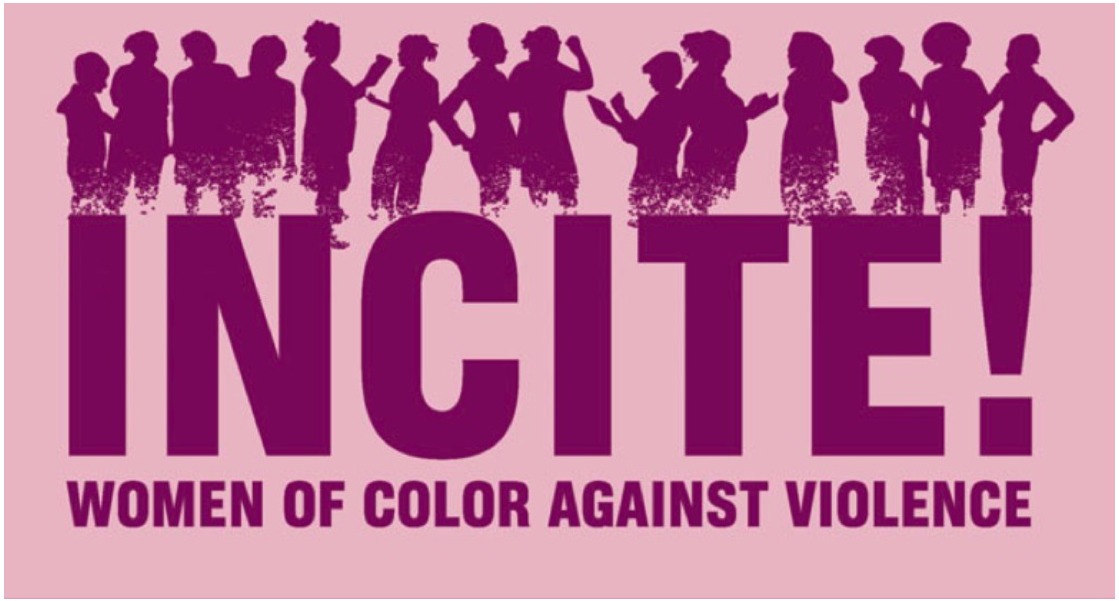
Gender Violence and the Prison Industrial Complex (2001)
This document was written by Incite!, a group of radical feminists who work to end violence against all women, in 2001. This document makes a connection between state, interpersonal, and domestic viol…
Double Jeopardy: To Be Black and Female (1971)
This document was written by Frances M. Beal in 1971. “Double Jeopardy: To Be Black and Female” links the anti-capitalist struggle, women’s liberation, and black liberation.
Lynching: A Weapon of National Oppression (1932)
This pamphlet was written by Harry Haywood and Milton Howard in 1932 under the direction of the Labor Research Association. The pamphlet states the causes and purposes of lynching, the organization of…
Political Prisoners, Prisons, and Black Liberation (May 1971)
In this document, Angela Y. Davis begins with a discussion of unjust laws and black resistance. After historical analysis, Davis begins to discuss the judicial system and the political prisoner. This…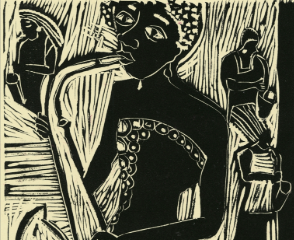
The Black Unicorn – Audre Lorde (1978)
Audre Lorde was a feminist activist who wrote poetry to confront issues of racism, sexism, capitalism, and heterosexism. Her work expresses raw emotion that reflects the experiences that she had in he…
The Discovery of What it Means to be American – James Baldwin (1961)
In these essays written during his time in Paris, Baldwin reflects on his efforts to find and build relationships around his unique identity as an individual, rather than his identity as an African Am…
Angela Davis on Mainstream Feminism/ Bourgeoise Feminism (2017)
In this lecture, Angela Davis addresses her career-long struggle to identify as a feminist, given the current state of the feminist movement. Breaking through the glass ceiling, as Davis notes, is gro…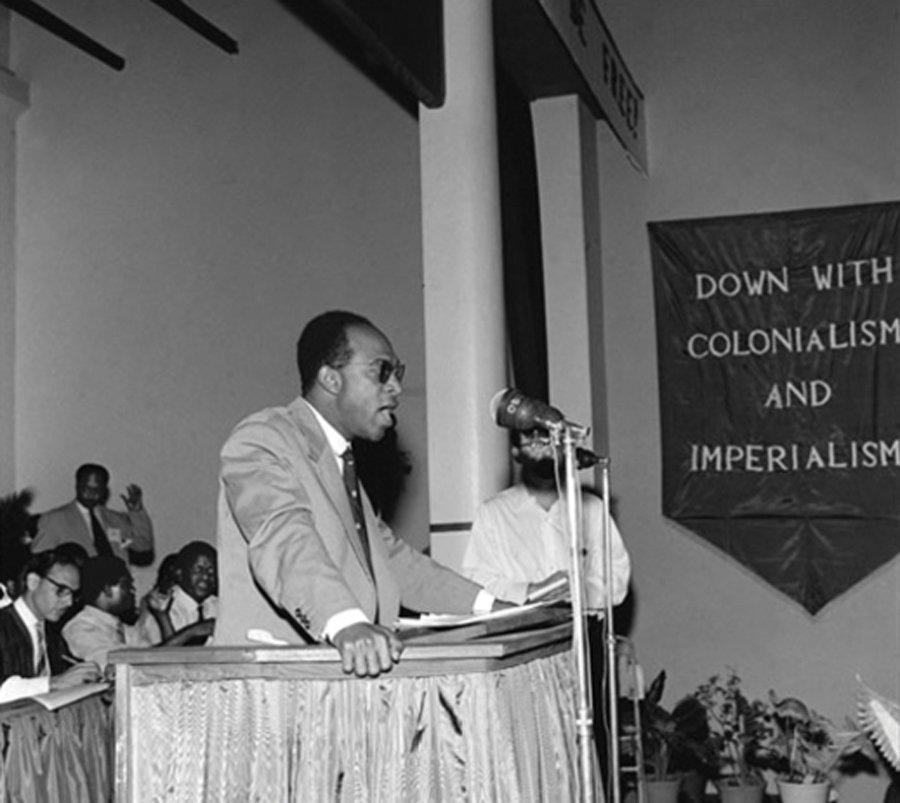
The Negro and Language – Frantz Fanon (1952)
In this chapter of one of his most important works, Frantz Fanon establishes the way that identity is manifested through language, and the way that language is perceived by others in a way that enable…
The Fact of Blackness (1952)
Frantz Fanon was a French West Indian political philosopher whose work focused on post-colonial studies, decolonization, critical theory, and Marxism. In this work, Fanon works to theorize the way tha…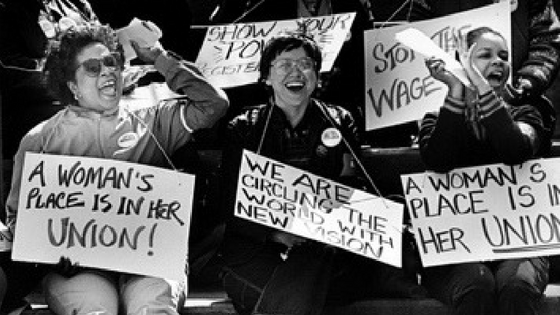
Interview with Alzada Clark – Organizing Black Women Workers (1989)
Alzada Clark organized workers – specifically Black women – in the South, established unions, and participated in the Black Power movement at large. In this interview, she discusses her experiences.
Women, Power, and Revolution (1998)
This document by Kathleen Neal Cleaver explores the role of women and gender in the Black Panther Party and Black Power Movement.
Angela Davis – Masked Racism: Reflections on the Prison Industrial Complex (2000)
In this document, Angela Davis analyzes the Prison Industrial Complex, specifically the privatization of and profits from prisons, the ways that it is portrayed to citizens, and how it reinforces raci…
The Black Power Mixtape (1967-1975)
THE BLACK POWER MIXTAPE 1967-1975 mobilizes a treasure trove of 16mm material shot by Swedish journalists who came to the US drawn by stories of urban unrest and revolution. Gaining access to many of…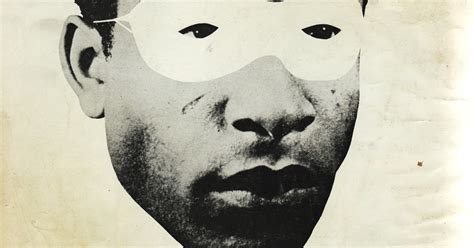
Introduction to Black Skin, White Masks by Frantz Fanon (1952)
Black Skin, White Masks is an autoethnography, written by Frantz Fanon in 1952. Fanon shares his own experience while relating these experiences to a historical critique of racism and colonization.
The So-Called Dependency Complex of Colonized Peoples by Frantz Fanon (1952)
This excerpt is from Black Skin, White Masks, an autoethnography written by Frantz Fanon in 1952. Fanon shares his own experience while relating these experiences to a historical critique of racism an…
Preface to The Wretched of the Earth by Franz Fanon (1961)
This book discusses the dehumanizaing effect of colonialism and the implications of a social movement for decolonization, especially focusing on the role of violence.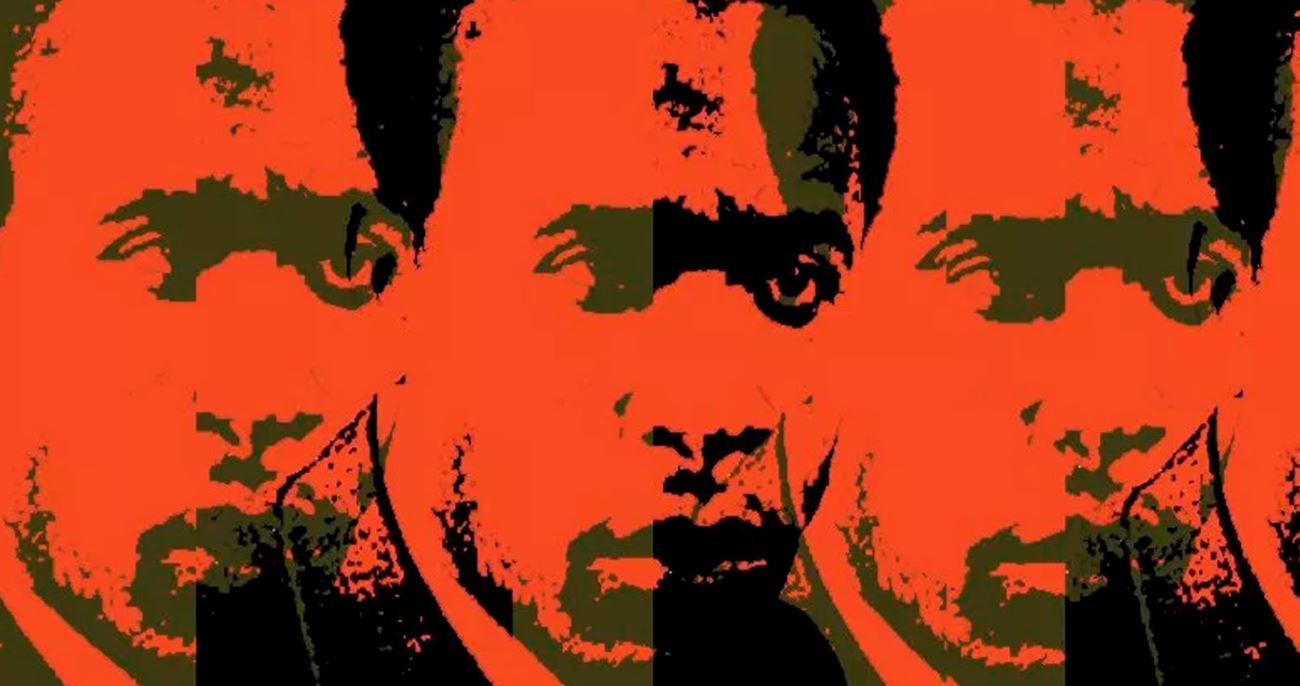
Violence in the International Context by Frantz Fanon (1961)
This PDF is an excerpt from The Wretched of the Earth, a 1961 book by the psychiatrist Frantz Fanon, a revolutionary theorist of colonialism and race. This book discusses the dehumanizaing effect of c…
Spontaneity: Its Strength and Weakness by Frantz Fanon (1961)
This PDF is an excerpt from The Wretched of the Earth, a 1961 book by the psychiatrist Frantz Fanon, a revolutionary theorist of colonialism and race. This book discusses the dehumanizaing effect of c…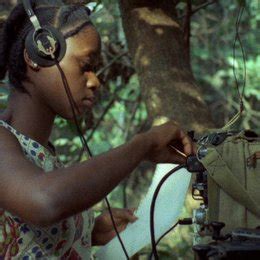
On National Culture by Frantz Fanon (1961)
This PDF is an excerpt from The Wretched of the Earth, a 1961 book by the psychiatrist Frantz Fanon, a revolutionary theorist of colonialism and race. This book discusses the dehumanizaing effect of c…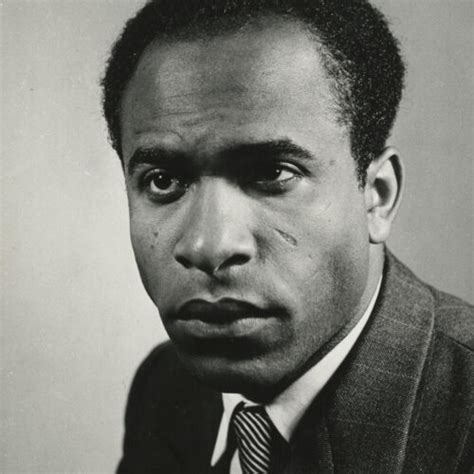
Reciprocal Bases of National Culture and the Fight for Freedom by Frantz Fanon (1961)
This PDF is an excerpt from The Wretched of the Earth, a 1961 book by the psychiatrist Frantz Fanon, a revolutionary theorist of colonialism and race. This book discusses the dehumanizaing effect of c…
Colonial War and Mental Disorders by Frantz Fanon (1961)
This PDF is an excerpt from The Wretched of the Earth, a 1961 book by the psychiatrist Frantz Fanon, a revolutionary theorist of colonialism and race.
Concerning Violence by Frantz Fanon (1961)
This PDF is an excerpt from The Wretched of the Earth, a 1961 book by the psychiatrist Frantz Fanon, a revolutionary theorist of colonialism and race. This book discusses the dehumanizaing effect of c…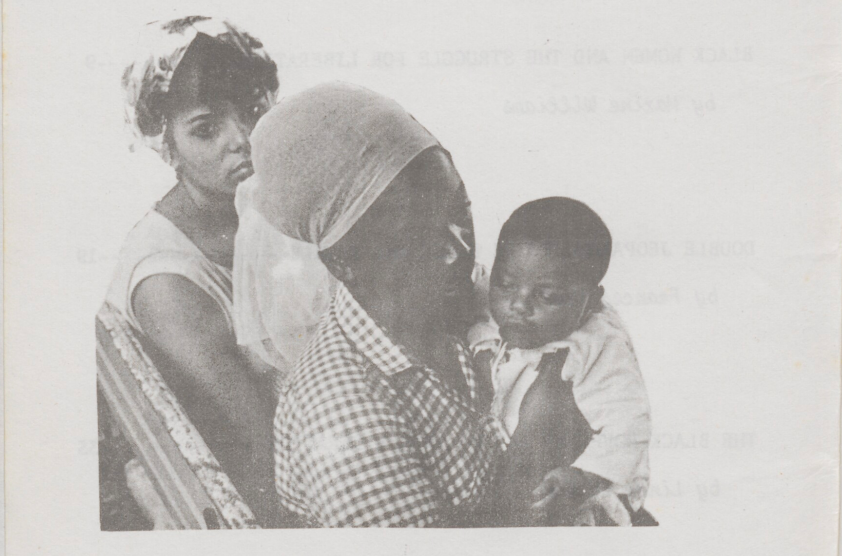
Black Women’s Manifesto (1970)

The Revolution Will Not Be Televised by Gil Scott-Heron (1971)
The revolution will be no re-run, brothers The revolution will be live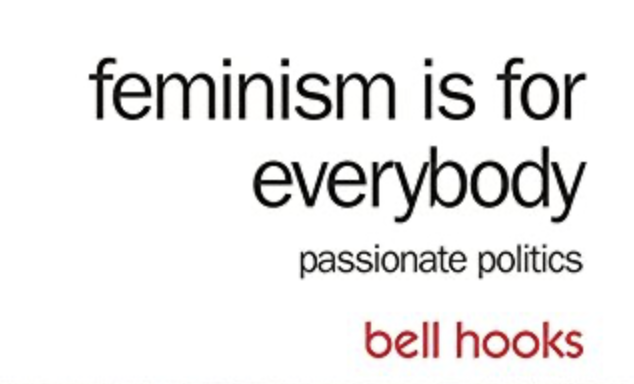
bell hooks – Feminism is for Everybody (2000)
bell hooks is a feminist, professor, and activist. In 2000, she published “Feminism is for Everybody”. Key to her politics and feminist philosophy is that the overarching “enemy”/structure to dismantl…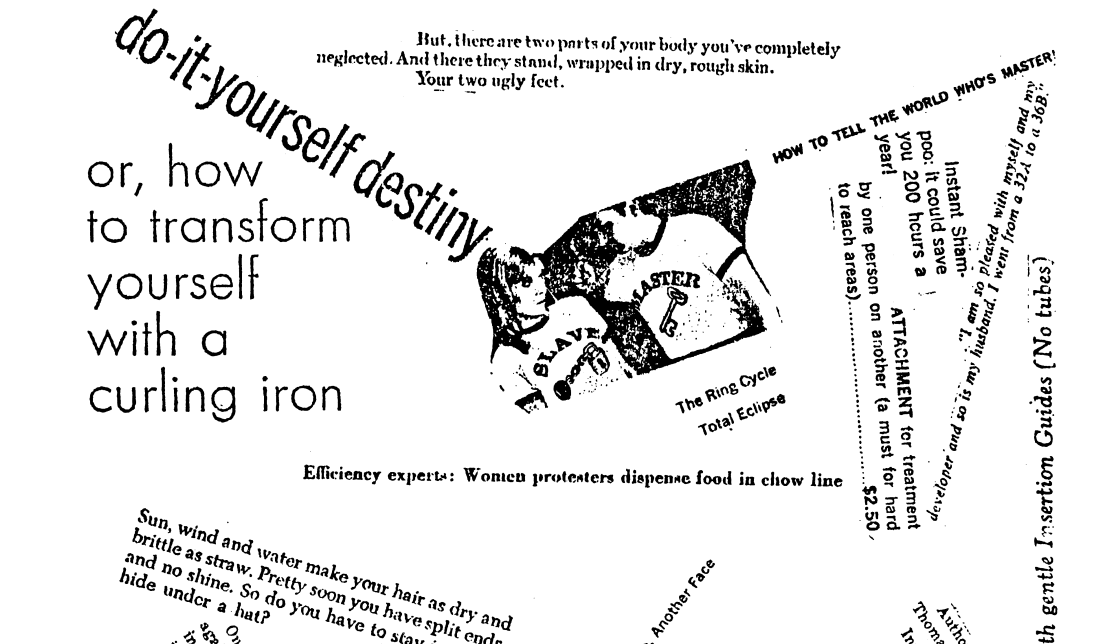
People Don’t Get Radicalized Fighting Other People’s Battles (Redstockings, 1968)
This magazine was published by the Redstockings, a radical feminist group, as part of their Action Series. The series of writings in it contain intersectional analysis of the New Left Movement, and th…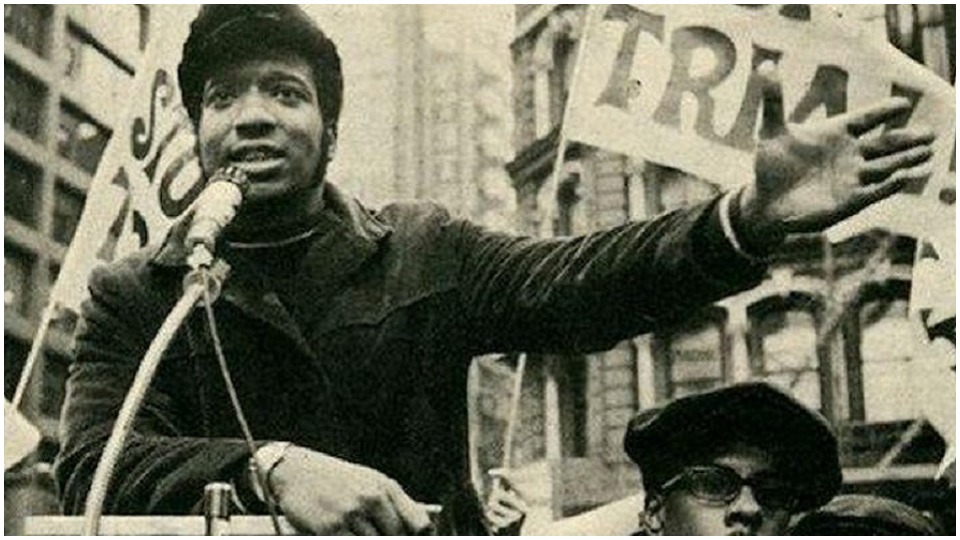
Power Anywhere Where There’s People! (1969)
The Black Panther Party was founded in Oakland, California, in 1966, and originally was called The Black Panther Party for Self-Defense. It was a militant, leftist group in support of Black Liberation…
In Defense of Self Defense (1967)
The Black Panther Party was founded in Oakland, California, in 1966, and originally was called The Black Panther Party for Self-Defense. It was a militant, leftist group in support of Black Liberation…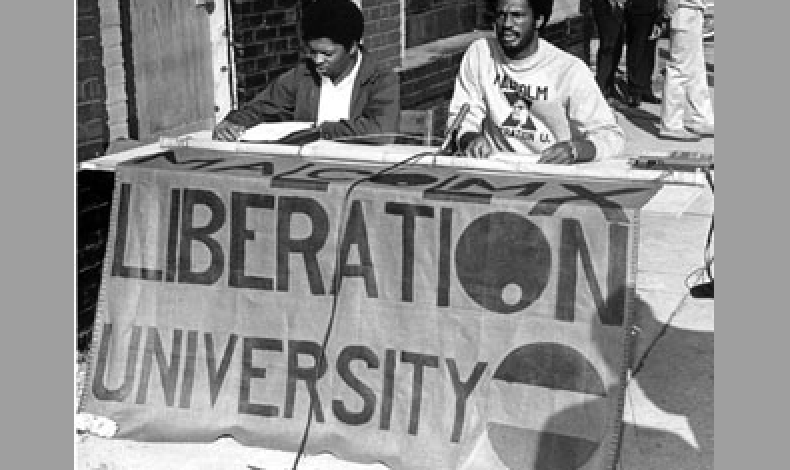
Malcolm X Liberation University: Collection of News Articles
In October of 1969, the Malcolm X Liberation Univeristy was founded byHoward Fuller and other prominent Black activists. The creation of the university was inspired by Black Nationalism and Pan-Africa…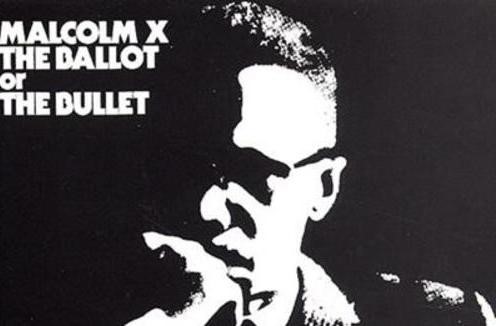
The Ballot or the Bullet (1964)
In “The Ballot or the Bullet”, civil rights activist and Black Nationalist Malcolm X spoke to Black Americans, encouraging them to vote if they had the ability to. In this speech, however, he noted th…
Frantz Fanon’s Speech at the Second Congress of Black African Writers (1959)
In this speech, Frantz Fanon discusses the effects that colonization has on the culture of those colonized. Additionally, Fanon explores the connections between liberation and culture.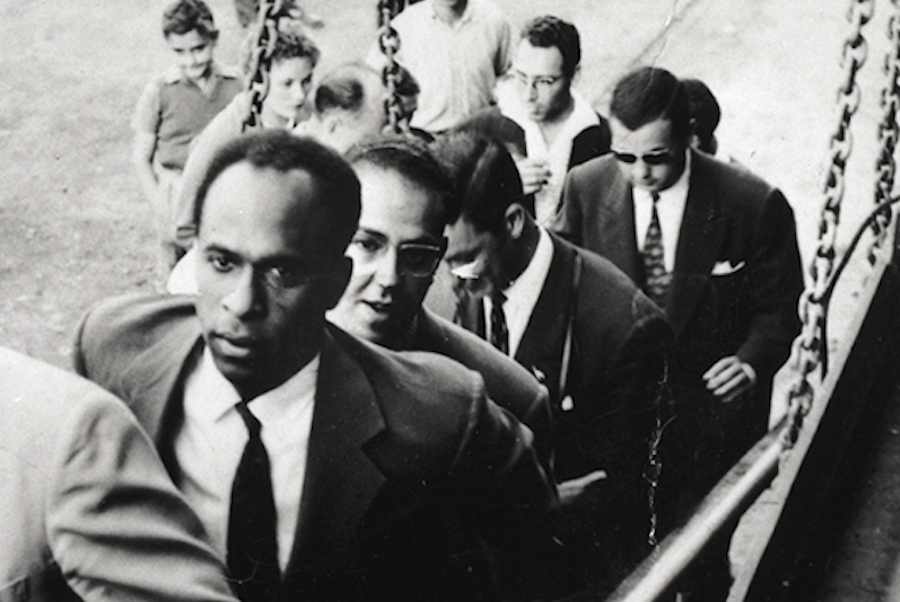
The Wretched of the Earth – Conclusion (1961)
Frantz Fanon – who was born in the French colony Martinique – extensively wrote about decolonization. According to Fanon, decolonization is always a violent process. The violence involved in decoloniz…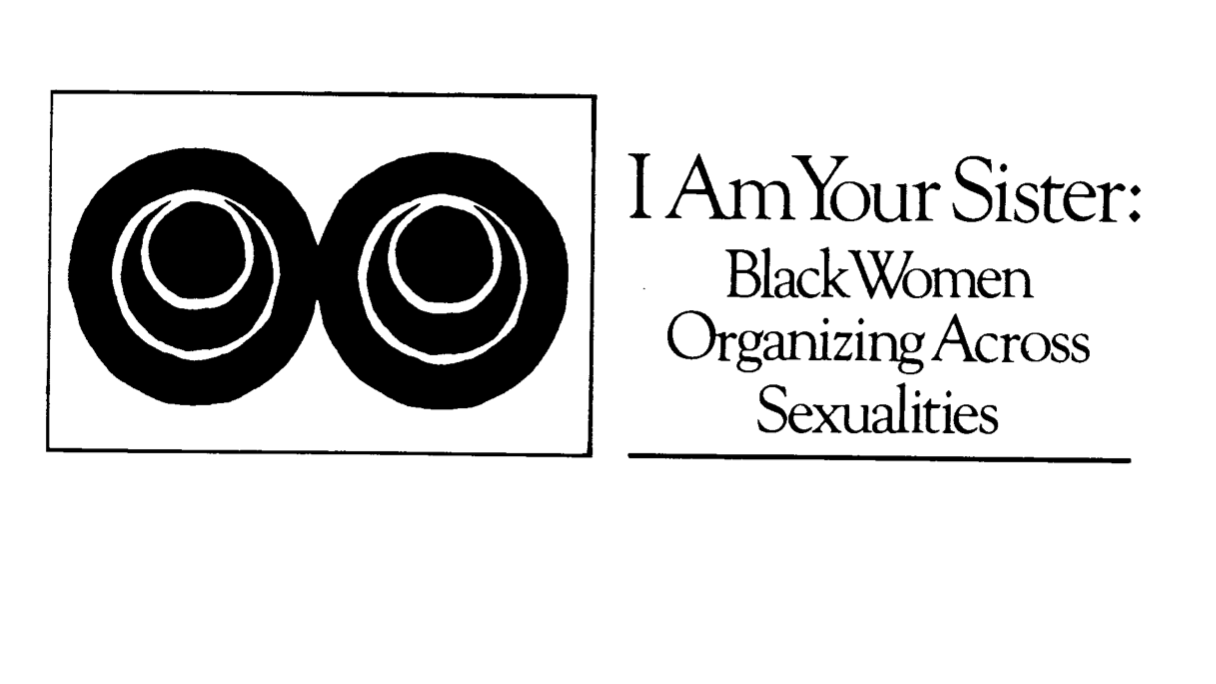
I Am Your Sister: Black Women Organizing Across Sexualities (1985)
In 1985, feminist, civil rights activist, and librarian Audre Lorde published “I Am Your Sister: Black Women Organizing Across Sexualities”. The essay was centered around organizing black women in the…